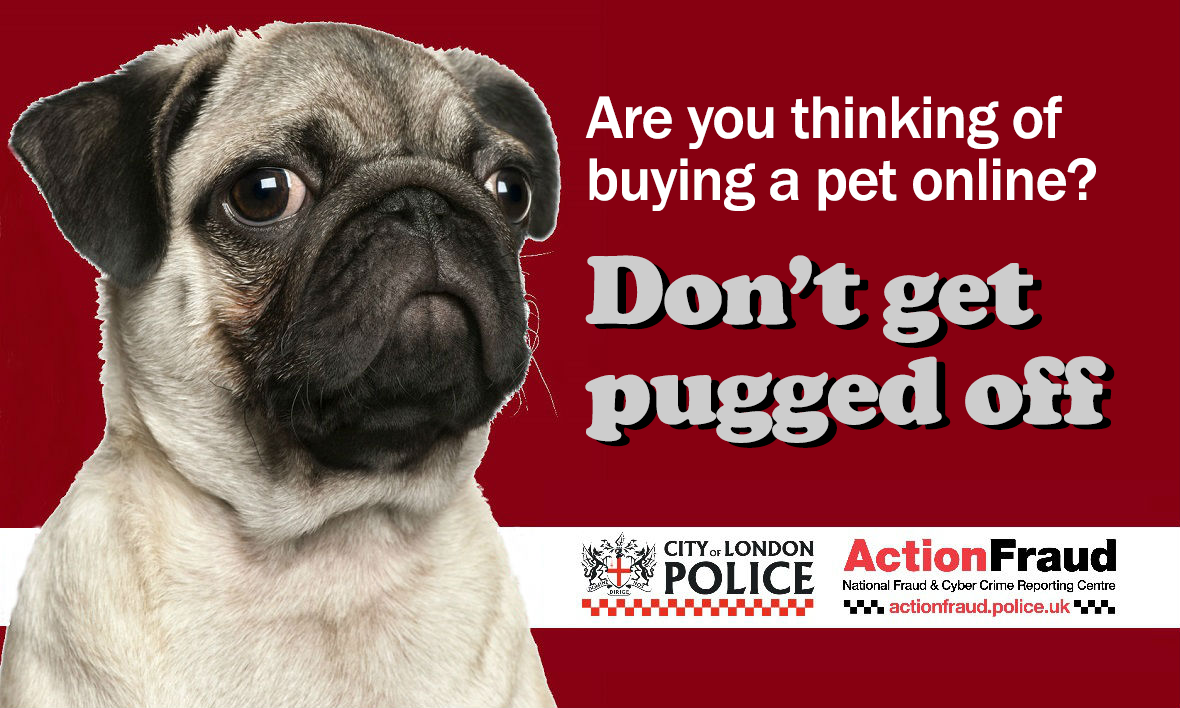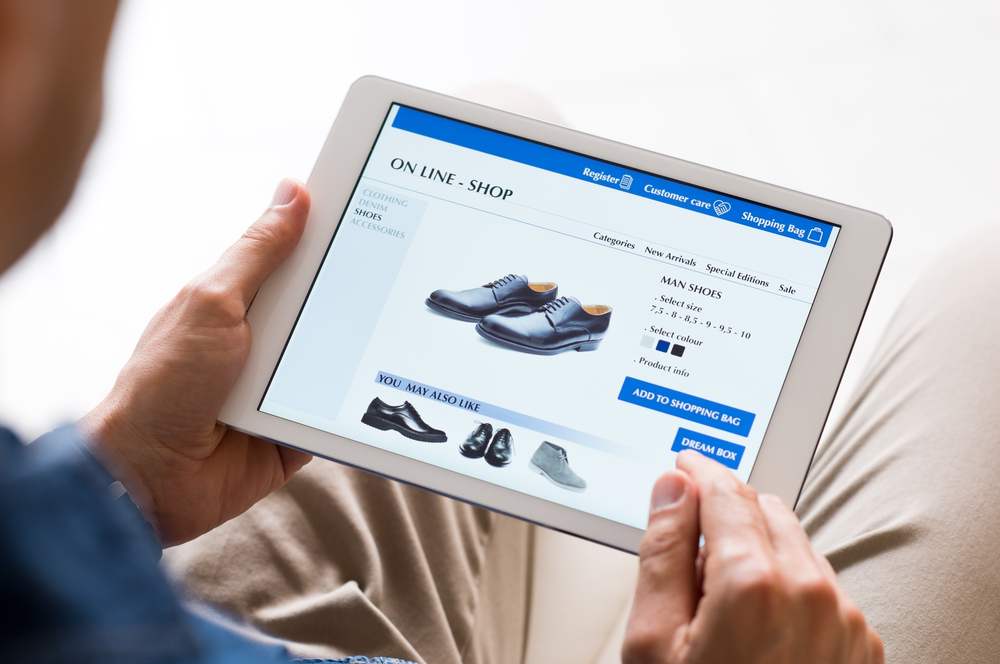Action Fraud is warning the public that fraudsters are posting advertisements for non-existent animals and pet accessories online.

- Between March 2012 and April 2018, 5066 reports of this fraud were made to Action Fraud.
- Victims reported losing £3,129,273 during this time – an average of £40,640 per month.
How is this happening?
Fraudsters are advertising pets and pet accessories on online marketplaces at a lower than expected price in an attempt to attract victims. The fraudsters are then demanding full payment or a deposit for the animal via bank transfer or electronic wire.
To prevent requests to visit the animal, fraudsters will tell victims that it is located in a remote or faraway location, which stops them from travelling to see it.
In some cases, the fraudsters are telling victims that they need to pay further fees for animal travel insurance, documentation or special travel cages. Victims are promised that some or all of these extra fees will be refunded when they receive the animal, however once these funds have been transferred, the fraudster will stop all communication, leaving victims out of pocket and with no pet.
A report from Action Fraud and the National Fraud Intelligence Bureau (NFIB) shows that 61% of victims were female and 22% of victims were 20 – 29 years old. It also shows that 31% of people said falling victim to this type of fraud had a significant impact on their health and financial wellbeing.
The report suggests that fraudsters are targeting victims who wish to buy popular breeds. The highest number of reports related to pugs – 224 reports were made between January 2012 and May 2018, with victims losing £76,451.
Fraudsters are also offering pet-related products for sale which don’t exist or are not as described. Equine accessories accounted for 92% of monetary losses. Between January 2012 and May 2018, 368 reports were made which concerned a horse box or trailer. The total reported loss was £1,145,369 with an average loss of £3,112 per victim.
Director of Action Fraud, Pauline Smith, said:
“Fraudsters are taking advantage of people looking for pets online, often to bring into their family.
“When a person falls victim to this fraud, the upset and financial loss caused can be huge and the promise of a family pet to children is often left empty.
“This is why it’s so important that you follow our advice to help protect yourself and always trust your instincts – if an offer seems too good to be true, it probably is.
“If you think you have been a victim of fraud, report it to us.”
A spokesperson for Gumtree said:
“At Gumtree, we take the welfare of animals seriously and work hard to ensure our site is a safe place to rehome pets. We comply with the Pets Advertising Advisory Group (PAAG) 18 industry-endorsed standards to improve animal welfare in an ecommerce environment. Last year, we introduced a compulsory paywall in our Pets category, in a bid to deter unscrupulous operators from misusing our platform and discourage the illegal trading of animals online.
“Our online Pets Advice Hub, which has been developed with guidance from the RSPCA and PAAG, aims to educate users on buying pets safely and responsibly online. We have a dedicated safety team to monitor and regulate our site, but we also actively encourage our customers to report any ad they believe encourages or indicates signs of animal cruelty. A full summary of our rules around listing for pets can be found on our website, were we also provide advice on how to buy pets safely on our site and a checklist for potential buyers.”
Dogs Trust Veterinary Director and chair of the Pet Advertising Advisory Group (PAAG), Paula Boyden, said:
“We are incredibly concerned about the huge numbers of pets advertised for sale via online classified advertising websites. Sadly this trade knows no bounds and we are well aware of the lengths these sellers will go to, to turn a profit, including blinding the public with cute images, fake information and too good to be true prices.
“Education and awareness is key, and we have created howtobuyapet.co.uk – a one stop shop of advice from the UK’s top animal welfare organisations – to help people buy a happy, healthy pet. We advise people visit a pet several times before they take them home – this will lessen the chance of this type of fraud as well as helping reduce the risk of buying from an unscrupulous seller who puts profits over animal welfare.”
Don’t get pugged off:
-
- If you’re purchasing goods and services from a company or person you don’t know and trust, carry out some research first, or ask friends and family for advice before completing a purchase. Remember, if an offer seems too good to be true, it probably is
- Avoid paying for good and services by bank transfer as that offers you little protection if you become a victim of fraud. Instead, use a credit card or payment services such as PayPal.
- Ask for photographs or videos of the animal; a responsible seller will understand why the buyer wants photographs and more information before making a purchase.
- Use the online marketplace’s ‘report’ function if you come across suspicious adverts or sellers.
-
- Sellers offering to meet you ‘halfway’ seems generous but you should only buy the puppy directly from the place where he/she was born and raised.
-
- When buying a puppy, you must insist on seeing the puppy interacting with its mother and littermates in the location where they were bred and reared - Make sure you visit the puppy more than once too.
- If you think you have fallen victim to this type of fraud, report it to Action Fraud online or by calling 0300 123 2040.
- When buying a puppy, you must insist on seeing the puppy interacting with its mother and littermates in the location where they were bred and reared - Make sure you visit the puppy more than once too.



